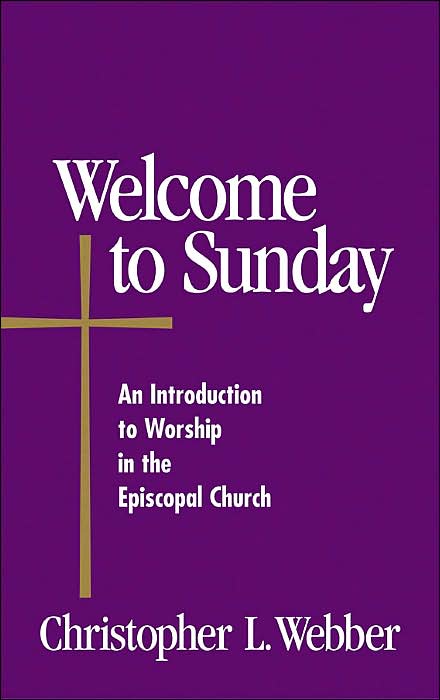Friday, March 31, 2006
Tuesday, March 28, 2006
Subjective Authenticity
I think we had a fruitful discussion last week regarding the buzzword "transparent." I know I learned some things, and perhaps when I'm finished with this series, I'll compile some final thoughts on each of the words.
Let's next turn our attention to the term being used by every allegedly culturally relevant church: "authentic." I was recently listening to a Mars Hill Audio CD and Ken Myers made the point that "authenticity" has traditionally meant that something is objectively and verifiably genuine. For example, an authentic Persian rug would be a rug that is genuinely from Persia, and made by Persians.
But it seems that the current use of the word "authentic" refers not to something objectively and verifiably genuine, but rather to something which is subjectively and relativistically true to one's inward feelings. For example, a church would say that they have "authentic worship," meaning not that they worship God in the ways in which He has objectively required of people, but in a way in which we "sense His presence" and "feel His closeness." Being a Christian is no longer about faithful obedience (since that is so pharisaical and hypocritical); it's now more about being real and sincere.
But if we are truly authentic in this sense of the word, what happens when, as an authentic Christian, I don't feel like coming in to work this morning? If I come in anyway, I'm being a hypocrite. The more authentic thing for me to do would be to stay home. In fact, maybe I already am a member of one of those authentic churches, but because I don't feel like going, and don't really like them, I've never attended. Cool.
Am I way off here? Is this a straw man argument? What do you think? read more
Let's next turn our attention to the term being used by every allegedly culturally relevant church: "authentic." I was recently listening to a Mars Hill Audio CD and Ken Myers made the point that "authenticity" has traditionally meant that something is objectively and verifiably genuine. For example, an authentic Persian rug would be a rug that is genuinely from Persia, and made by Persians.
But it seems that the current use of the word "authentic" refers not to something objectively and verifiably genuine, but rather to something which is subjectively and relativistically true to one's inward feelings. For example, a church would say that they have "authentic worship," meaning not that they worship God in the ways in which He has objectively required of people, but in a way in which we "sense His presence" and "feel His closeness." Being a Christian is no longer about faithful obedience (since that is so pharisaical and hypocritical); it's now more about being real and sincere.
But if we are truly authentic in this sense of the word, what happens when, as an authentic Christian, I don't feel like coming in to work this morning? If I come in anyway, I'm being a hypocrite. The more authentic thing for me to do would be to stay home. In fact, maybe I already am a member of one of those authentic churches, but because I don't feel like going, and don't really like them, I've never attended. Cool.
Am I way off here? Is this a straw man argument? What do you think? read more
Monday, March 27, 2006
On the Up and Up
 Oh, man. I haven't been myself lately. I think it's been about five years since I was last sick, and I had forgotten how miserable it can be. Last Wednesday I started feeling congested and my throat started itching, and then Thursday morning it hit me with a fury. I was flat on my back for the rest of the week.
Oh, man. I haven't been myself lately. I think it's been about five years since I was last sick, and I had forgotten how miserable it can be. Last Wednesday I started feeling congested and my throat started itching, and then Thursday morning it hit me with a fury. I was flat on my back for the rest of the week.I'm not trying to get your sympathy; I just wanted you to know why I haven't posted in a while. I was so sick I couldn't even get to my computer (so my wife knew that I wasn't faking it) and I was barely able to sit up long enough to watch March Madness. Texas is out (sniff), so I'm rooting for the UCLA underdogs, but I digress.
Anyway, I'm finally starting to get back to normal, so hopefully there'll be more fodder for discussion here at the blogical blogspot soon. read more
Monday, March 20, 2006
Translucent Transparency
Many churches today are using buzzwords to get people to attend, and/or perhaps to understand who they are/ought to be. The top five I hear are: relevant, authentic, missional, relational, and transparent. Much could be said (and may be in due time) about this issue, but that is not the telos of this post; this is more of a rabbit trail.
The other day, I was thinking about how churches are using the word "transparent." What do we mean when we say that we are transparent? I doubt that we mean that we have the property of transmitting light without appreciable scattering so that bodies lying beyond are seen clearly. I think we are trying to say that we are (I know this sounds old-fashioned) honest.
See, we want people to know that we are honest, but we don't want to come right out and say it. So let's use a word that is less precise, but which still gets the idea across in a much less prudish way. How about "transparent?"
Question: Does this mean that we are, in a sense, being dishonest in the way that we present our honesty? read more
The other day, I was thinking about how churches are using the word "transparent." What do we mean when we say that we are transparent? I doubt that we mean that we have the property of transmitting light without appreciable scattering so that bodies lying beyond are seen clearly. I think we are trying to say that we are (I know this sounds old-fashioned) honest.
See, we want people to know that we are honest, but we don't want to come right out and say it. So let's use a word that is less precise, but which still gets the idea across in a much less prudish way. How about "transparent?"
Question: Does this mean that we are, in a sense, being dishonest in the way that we present our honesty? read more
Thursday, March 16, 2006
Tuesday, March 14, 2006
What is Worship?
 “Worship is the submission of all our nature to God. It is the quickening of conscience by His holiness; the nourishment of mind with His truth; the purifying of imagination by His Beauty; the opening of the heart to His love; the surrender of will to His purpose – and all of this gathered up in adoration, the most selfless emotion of which our nature is capable and therefore the chief remedy for that self-centeredness which is our original sin and the source of all actual sin."
“Worship is the submission of all our nature to God. It is the quickening of conscience by His holiness; the nourishment of mind with His truth; the purifying of imagination by His Beauty; the opening of the heart to His love; the surrender of will to His purpose – and all of this gathered up in adoration, the most selfless emotion of which our nature is capable and therefore the chief remedy for that self-centeredness which is our original sin and the source of all actual sin."-William Temple, Archbishop of Canterbury (1881-1944)
What do you think about this quote? read more
Wednesday, March 08, 2006
The Church Is Salvation
 I am currently reading Against Christianity by Peter Leithart, and I must say that so far, it has been a thoroughly refreshing and enjoyable read. Much of his writing (content more than style) reminds me of my favourite author, N.T. Wright; and he even references the good bishop on occasion.
I am currently reading Against Christianity by Peter Leithart, and I must say that so far, it has been a thoroughly refreshing and enjoyable read. Much of his writing (content more than style) reminds me of my favourite author, N.T. Wright; and he even references the good bishop on occasion.The book is divided into chapters, and each chapter is further divided into short essays, each touching on the major theme of that particular chapter from a distinct perspective. It is an interesting writing style, to say the least; and the result is an aesthetically unique, and compelling cumulative case argument against Christianity... If you want to know how this can be so (given that the author is a Christian), you'll have to buy the book. To give you a taste of his writing, Let me quote at length one of his essays:
"Salvation is not a stuff that one can get, whether through the Church, or through some other means. It is not an ether floating in the air, nor a 'thing,' nor some kind of 'substance.' 'Salvation' describes fallen creation reconciled to God, restored to its created purpose, and set on a trajectoryleading to its eschatological fulfillment. Ultimately, 'salvation' will describe the creation as a whole, once it is restored to God and glorified (Rom. 8:18-25). Grammatically, 'salvation' is a noun; theologically, it is always adjectival" (32).
Mmm, Mmm. That is good stuff. Any thoughts? read more
Monday, March 06, 2006
It's a Joke
My wife saw my new profile photo, and told me that I look dorky. I told her that I was going for "dorky, so thank you very much." She said that it looks like "you're dorky, but you think you look cool." I said that "I was trying to look dorky, while making people think that I think I look cool."
Anyway, all that to say that the picture is a joke. I very rarely take myself seriously, and I suggest you do the same. read more
Anyway, all that to say that the picture is a joke. I very rarely take myself seriously, and I suggest you do the same. read more
Thursday, March 02, 2006
Suggestions for Preparing for Easter
 My good friend Steve wrote the following article a few years ago for my church (and which caused an unbeivable debacle among some of the brethren. Who knew that the "L" word was such a profanity among some evangelicals!). I publish it here for your edification.
My good friend Steve wrote the following article a few years ago for my church (and which caused an unbeivable debacle among some of the brethren. Who knew that the "L" word was such a profanity among some evangelicals!). I publish it here for your edification.What is Lent?
Lent is the forty day period before Easter extending from Ash Wednesday to Holy Saturday (the day before Easter Sunday). The word Lent comes from an Old English word for “longer days” or Spring, the time of year during which Lent is observed. The observance is forty days because forty days is a traditional number in the Bible of discipline, devotion, and preparation. We read that Moses stayed on the Mountain of God forty days (Exodus 24:18 and 34:28), the spies were in the land for forty days (Numbers 13:25), Elijah traveled forty days before he reached the cave where he had his vision (1 Kings 19:8), Nineveh was given forty days to repent (Jonah 3:4), and most importantly, prior to undertaking his ministry, Jesus spent forty days in the wilderness praying and fasting (Matthew 4:2).
Why do Christians observe Lent?
There are two main reasons why Christians observe Lent. The first reason concerns the centrality of Easter. Even our secular culture observes Christmas, but Easter, not Christmas, is the High Holy Day (holi-day) in Christianity. It is the pivotal moment in history; therefore, we should prepare, remind, and reorient ourselves to the things of God. The second reason Christians observe Lent is in imitation of Christ. Christ used a forty day period of prayer and fasting to prepare for his ministry, which culminated in his death and resurrection. Thus, it is fitting for Christians to imitate him with a forty day period of prayer and fasting to prepare for the celebration of his ministry's climax: Good Friday (the day of the crucifixion) and Easter Sunday (the day of the resurrection).
How can you observe Lent?
Lent is an intentional time set apart for discipline, prayer, repentance, contemplation, and recommitment. You might use this time to force yourself for a short period to do the things you know you need to do but think you lack the discipline to stick with—things like fasting, praying, giving, or reading. You can set aside a specific time every day to pray and to contemplate the reasons for Easter, the Life of Christ, what it means to be a Christian, or what you need to do as a result of Christ’s sacrifice. The best way to do this is to read scripture then allow your mind to dwell on what you have read. Confess your sins before God. Ask forgiveness. Spend time contemplating why Jesus died and why He rose again. Demonstrate your remorse and regret for your sins. Desire to make this a time of recommitment to living the way Christ intended. read more























